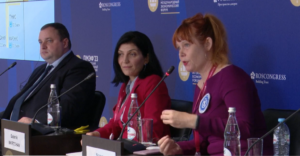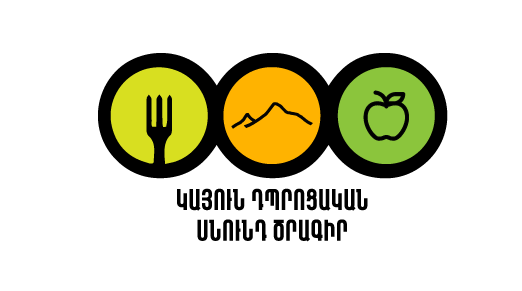- February 3, 2024

The success story of Armenia’s “School Feeding” program was showcased during the session titled “Population Social Assistance Programs as a Driving Force of Economic Development.” This session was organized as part of the St. Petersburg International Economic Forum 2023, scheduled to be held from June 14 to 17 in St. Petersburg, Russia.
The “School Feeding” program has been implemented since 2010 by the UN World Food Organization and the Government of the Republic of Armenia, with the technical support of Social and Industrial Foodservice Institute (SIFI) of Russia and with the financial support of the Russian Government which was fully transferred to the Government of the Republic of Armenia in 2023.
The example of Armenia was presented at the session by Satenik Mkrtchyan, director of the “School Feeding and Child’s Welfare” Agency, and Nanna Skau, director of the UN Food Program in the Republic of Armenia. The participants detailed how the “School Feeding” program has evolved from a simple solution to a social problem, providing food to children, to a program that implements economic mechanisms and contributes to the development of human capital over the span of a decade. As an example, they presented a model that unites nine villages near Arpi Lake in Shirak marz.

The discussion began with the challenges encountered during the project’s implementation, highlighting the largest challenge to be the nationalization of the project. However, it is apparent that this challenge has been overcome. The government has taken full responsibility, not only for feeding the children, but also for the re-equipping, improvement, and continuous development of the school kitchens.
Satenik Mkrtchyan, director of the “School Feeding and Child’s Welfare” Agency, emphasized this message at the start of her speech: “Proofread text:
As an example, let me mention that recently, with the redistribution of budget funds, the government decided to thoroughly reorganize the school canteens of Shirak marz, supporting the improvement of kitchen infrastructures in need of major repair, and ensuring that the missing canteen equipment reaches the schools. Therefore, they will welcome the new academic year with transformed canteens.
During the session, the challenges faced by the project were reflected in the three cornerstones that determined the success of the project: the drive to constantly move forward, the continuity of technical support, and finally, the most important aspect – human capital.”
“The nine schools of the Arpi community, united around school meals, have changed the lives of their residents by creating school greenhouses, revitalizing local production, attracting investments for the overhaul of school canteens, and ensuring the uninterrupted operation of the program,” presented Nanna Skau. “This transformative approach allows local communities to invest and become more resilient to economic shocks.”
During a workshop at the St. Petersburg International Economic Forum, participants were able to witness the transformative potential of social assistance programs through a real-life example. The focus was on the “School Feeding” program in Armenia, and the workshop attendees emphasized how initiatives like this can act as powerful catalysts for both economic and social development. These programs have the ability to positively transform the lives of individuals and communities, effectively putting economic mechanisms into action.

